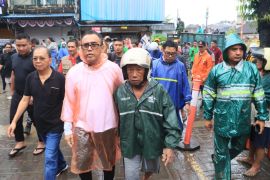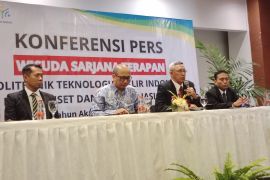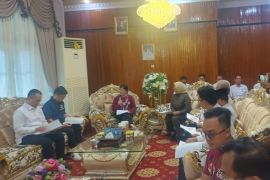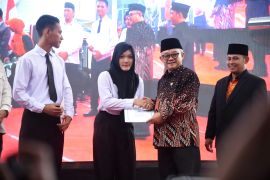"We have reached agreements with Vietnam and Thailand. Based on the agreements, Indonesia will decide on the time of the imports. When we put forth a request, they need a month to dispatch," Darmin said.Jakarta (ANTARA News) - The government is preparing to import rice due to the El Nino-induced drought, stated Coordinating Minister for Economic Affairs Darmin Nasution.
"We have reached agreements with Vietnam and Thailand. Based on the agreements, Indonesia will decide on the time of the imports. When we put forth a request, they need a month to dispatch," Minister Nasution affirmed here, Tuesday.
He quoted the Meteorology, Climatology and Geophysics Agencys forecast that the current El Nino might be stronger than that experienced in the 1997-1998 period when Indonesia was forced to import tons of rice.
Indonesia is reeling under the impacts of the El Nino phenomenon as the rice stocks have dwindled, and the rice supply to regions is limited, thereby leading to a hike in the price of the commodity.
"The price of rice has increased by 10 percent over the last two months. It indicates that the stocks are decreasing," he noted.
The government has decided to import rice as the countrys stocks currently reach 1.7 million tons. Due to the prevailing weather conditions, the government plans to distribute 13th and 14th rice rations this year to the poor.
"We will wait until December, or November at the earliest, as rice harvests will still be carried out in October," Nasution noted.
In the meantime, in September 2015, Agriculture Minister Amran Sulaiman had stated that the ongoing drought would not affect the nations rice supply and made assurance that the government did not need to import rice.
"Rice stocks are secure for the next six months. State-owned Logistics Board (Bulog) has 1.7 million tons of rice in stock," the minister said after witnessing a rice harvest in Mekarsari Village, Banyusari Sub-district, Karawang District, West Java, in September.
According to Amran, if rice production is boosted every year, Indonesia would become self-sufficient in the next three years.
In order to boost rice production, the minister said the government had also signed a cooperation agreement with the Bogor-based Institute of Agriculture (IPB) to plant new varieties of rice.(*)
Editor: Heru Purwanto
Copyright © ANTARA 2015











